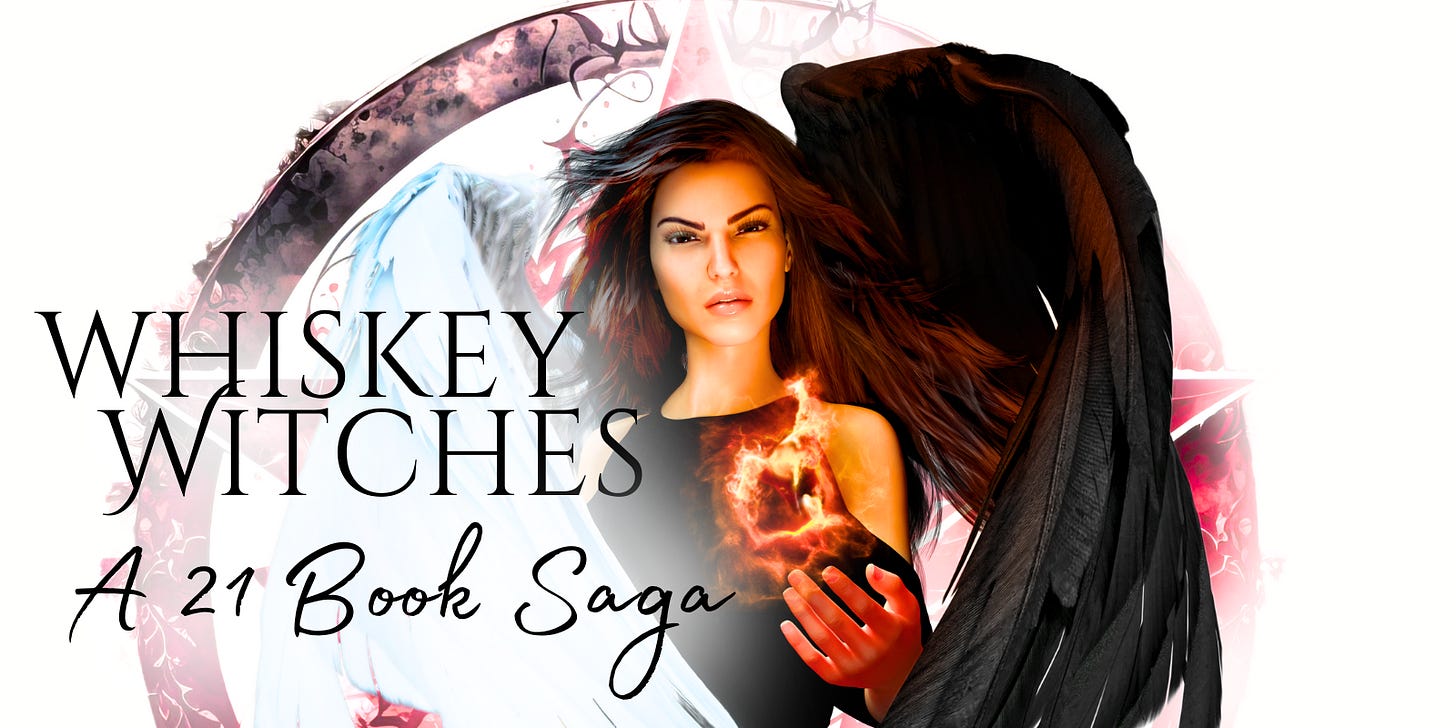The Changing Shape of Witch Fiction
And Its Impact On Readers
Throughout the ages, literature has been our magic mirror, reflecting societal values, fears, and aspirations. One intriguing facet of this vast realm is witch fiction, which has not only survived but thrived across time, evolving with society’s changing perceptions of witchcraft. Today, let's take a broomstick ride through time and explore how witch fiction has shaped—and been shaped by—our collective consciousness.
The Early Days: Witches as Symbols of Fear
Witch fiction didn’t begin with tales of empowering women, or individuals harnessing the elements for the greater good. Instead, early tales often painted witches as the embodiment of societal fears. Think of Shakespeare's "Macbeth" where the trio of witches symbolizes the darkest parts of human ambition and fate.
During eras riddled with plague, famine, and the unknown, it was all too easy to blame such misfortunes on a supposed witch. Literature of the time mirrored this sentiment, emphasizing the alien and dangerous nature of the witch.
Transition: From Feared to Misunderstood
As centuries passed and the Age of Enlightenment dawned, so too did a shift in witch representation. The world saw the birth of classics like Nathaniel Hawthorne’s "The Scarlet Letter," where the supposed "witch," Hester Prynne, wasn’t an evil enchantress but a symbol of individuality and resistance against societal norms.
These tales began to paint witches as misunderstood beings, not necessarily evil, but not wholly accepted either. They existed on the fringes, challenging readers to question society's judgment and to reflect on the consequences of blind prejudice.
The Modern Era: Empowerment and Responsibility
Fast forward to our more recent past, and witch fiction saw yet another transformation. Witches became symbols of empowerment, self-discovery, and community. Series like "Charmed" or J.K. Rowling’s "Harry Potter" introduced us to witches and wizards who used their powers not for personal gain, but to protect the innocent and maintain balance in the world.
Here, the message became clear: With great power comes great responsibility.
This modern portrayal in literature does more than provide a gripping tale; it teaches values. We learn about the karmic impact of our actions. A spell cast without care might backfire, just as hasty decisions in our lives might have unforeseen consequences. Through these stories, we’re reminded of the delicate balance between power and responsibility.
Witch Fiction’s Role in Personal Growth and Community
One of the most beautiful things about modern witch fiction is its emphasis on personal growth, community, and the understanding of one's place in the greater universe. This isn’t just about magic; it’s a reflection of our real-world understanding of ourselves.
As more people turned the pages of witch fiction, they were not only entertained but enlightened. The narrative that "magic" (or power) is inherent within each of us, waiting to be discovered and honed, is a powerful one. It prompts readers to introspect, asking: "What is my magic? How can I use my unique talents for the greater good?"
Furthermore, stories of covens and magical communities teach the importance of unity and collaboration. In a world that often feels fragmented, these tales remind us of the strength in numbers and the magic we can create when we come together for a shared purpose.
The Karmic Message
A common thread in witch fiction, especially the modern kind, is the idea of karma. Do good, and good will come to you. Use your powers recklessly, and there will be a price to pay. This isn’t just a magical principle; it's a life lesson.
When we act with kindness, integrity, and purpose, we set into motion a cycle of positivity. Conversely, actions borne out of selfishness or malice have their repercussions. Through witch fiction, readers young and old are reminded of this universal truth.
In Conclusion: Embracing the Magic
The journey of witch fiction is a testament to literature’s evolving role in society. What began as cautionary tales of fear has blossomed into stories of empowerment, responsibility, and community.
As witch fiction becomes more accepted and beloved, it’s heartening to see readers across the world drawing lessons of self-responsibility, unity, and the understanding of karmic impact. In these tales, we not only find escape but also wisdom.
So, the next time you pick up a book about witches, know that you're not just diving into a story of spells and potions. You're partaking in a rich tradition that has, over centuries, shaped minds and hearts, teaching us the true meaning of power and responsibility.
Happy reading and may you always find the magic within!


